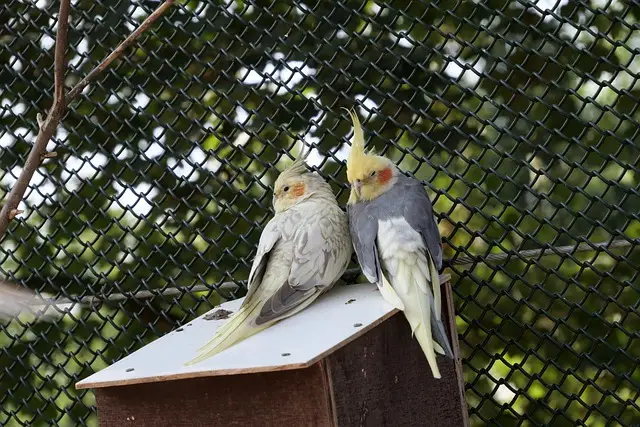Birds are delightful pets, and feeding them a balanced, nutritious diet is essential for their well-being. Birds have different dietary requirements depending on their species, but there are many foods that provide essential nutrients for most pet birds. Here’s a list of the top 10 best foods you should consider including in your bird’s diet to keep them healthy, active, and happy.
1. Pelleted Diets for birds.
Why:
Pellets provide a balanced mix of essential nutrients, including vitamins, minerals, and proteins, ensuring a well-rounded diet.
Feeding Tips:
Gradually introduce pellets to birds used to seeds by mixing them with their preferred foods.
Deficiency Risks:
Without a balanced diet, birds can suffer from malnutrition, leading to weakened immunity, poor feather quality, and general health decline.
2. Fresh Fruits.
Why:
Fruits are packed with vitamins (like Vitamin C) and antioxidants, which support the immune system and overall vitality.
Feeding Tips:
Serve in moderation due to high sugar content; always remove seeds and pits, as they can be toxic.
Deficiency Risks:
A lack of antioxidants and vitamins can compromise immune function, making birds more prone to infections.
3. Vegetables
Why:
Vegetables provide essential vitamins, particularly A and K, along with minerals and fiber for healthy digestion.
Feeding Tips:
Offer dark leafy greens regularly. Avoid onions, avocados, and raw potatoes, which are toxic to birds.
Deficiency Risks:
Without enough Vitamin A, birds may experience poor feather health, skin issues, and a higher susceptibility to respiratory infections. Lack of fiber can lead to digestive issues.
4. Seeds and Nuts.
Why:
Seeds and nuts provide healthy fats and proteins for energy and brain health.
Feeding Tips:
Deficiency Risks:
Insufficient fats and proteins can cause weight loss, lethargy, and reduced cognitive function. Overconsumption, however, can lead to obesity and fatty liver disease.
5. Cooked Grains and Legumes
Why:
Grains and legumes provide complex carbohydrates, fiber, and proteins for sustained energy and muscle health.
Feeding Tips:
Cook grains and legumes thoroughly, let them cool, and serve in small portions to avoid spoilage.
Deficiency Risks:
Without carbohydrates, birds may become fatigued and weak, as they lack energy. Protein deficiency can result in muscle loss.
6. Sprouted Seeds
Why:
Sprouted seeds are rich in enzymes and vitamins, especially B vitamins, which aid in metabolism.
Feeding Tips:
Rinse sprouts well to prevent mold and bacteria. Store in the fridge and discard if spoiled.
Deficiency Risks:
A lack of B vitamins can lead to poor energy metabolism, weakness, and neurological issues.
7. Eggs and Dairy Products
Why:
Eggs offer high-quality protein, and small amounts of dairy contribute calcium, which is essential for bones.
Feeding Tips:
Provide hard-boiled eggs in moderation, and avoid too much dairy due to birds’ potential lactose intolerance.
Deficiency Risks:
Calcium deficiency can lead to brittle bones, fractures, and increased risk of egg-binding in laying females.
8. Bird-Safe Herbs
Why:
Fresh herbs contribute trace nutrients and can offer mild medicinal benefits, like Vitamin K for blood clotting.
Feeding Tips:
Serve herbs fresh, but avoid strong varieties like sage and rosemary.
Deficiency Risks:
Without adequate Vitamin K, birds may experience clotting issues, leading to increased bleeding from minor injuries.
9. Cuttlefish Bone and Mineral Blocks
Why:
These supplements provide calcium and other minerals necessary for strong bones and beaks.
Feeding Tips:
Place cuttlebone and mineral blocks within reach and let the bird chew on them as needed. Replace them when worn down.
Deficiency Risks:
Calcium deficiency can lead to beak deformities, brittle bones, and egg-binding in female birds.
10. Fresh Water
Why:
Water is vital for digestion, hydration, and overall health.
Feeding Tips:
Change water daily to ensure freshness and regularly clean water dishes to prevent bacteria growth.
Deficiency Risks:
can result in kidney damage, lethargy, and in extreme cases, death.
Final Thoughts
A varied diet ensures your bird receives all essential nutrients while helping to prevent deficiency-related health issues. By following these feeding tips and regularly consulting with an avian veterinarian, you’ll be supporting your bird’s health and longevity, while also adding variety and enjoyment to their daily routine.



.jpeg)

